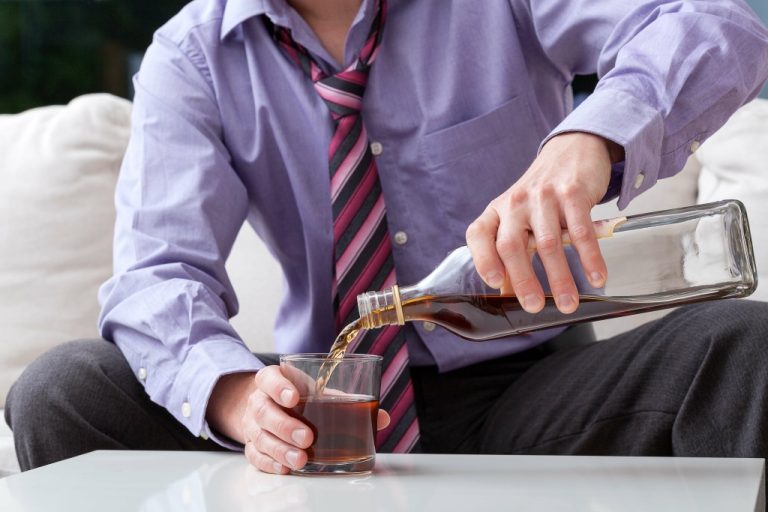Relapse Prevention Plan For Substance Abuse Preventing Relapse
Content
Clients sometimes think that they have been so damaged by their addiction that they cannot experience joy, feel confident, or have healthy relationships . Probably the most important thing to understand about post-acute withdrawal is its prolonged duration, which can last up to 2 years . It is not unusual to have no symptoms for 1 to 2 weeks, only to get hit again . This is when people are at risk of relapse, when they are unprepared for the protracted nature of post-acute withdrawal. Clinical experience has shown that when clients struggle with post-acute withdrawal, they tend to catastrophize their chances of recovery. The cognitive challenge is to encourage clients to measure their progress month-to-month rather than day-to-day or week-to-week. How individuals deal with setbacks plays a major role in recovery.
In the later stages the pull of relapse gets stronger and the sequence of events moves faster. Come up with methods and ways to help yourself be successful – things like setting small attainable goals and rewarding yourself for positive progress.
Does Medication-Assisted Treatment (MAT) for Alcohol Use Disorder (AUD) Work?
If you go to inpatient or outpatient rehab, you will typically create a relapse prevention plan as part of ongoing counseling and therapy sessions. That said, you can easily write a personalized relapse prevention plan at any stage and in any setting. After completing treatment, you need to develop a plan to cope with things like personal affairs, relationships, and career obligations. Your plan could address things like how to properly balance your personal life, recovery, and career. It should also account for issues like dealing with friends or family members that continue to use drugs and alcohol. Common post-acute withdrawal symptoms when recovering from addiction include insomnia and fatigue. The New York Office of Alcoholism and Substance Abuse Services reports that these are common potential triggers for relapse.

You should also choose a rehab center that equips you with a relapse prevention strategy and aftercare when you complete the https://ecosoberhouse.com/ program. Before you start writing a personalized plan to mitigate relapse, you can take the following predatory steps.
The Top 10 Relapse Prevention Skills
For those who are not in a treatment program, however, it can help to develop a relapse prevention plan. The emotional and mental relapse stages are what break the person down into actually drinking or using drugs.
- Still, there are some other components of your relapse prevention plan that you may want to include.
- With a relapse prevention plan, a person may be better equipped to address certain feelings and events to avoid a physical relapse.
- Identify tools for managing and responding to relapse triggers.
- It can be very beneficial to set up a daily ritual for maintaining physical health, such as a structured sleep schedule, plan for balanced meals, and a fitness regime.
- It is a common experience that airports and all-inclusive resorts are high-risk environments in early recovery.
A denied user is in chronic mental relapse and at high-risk for future relapse. alcohol relapse Clinical experience has shown that everyone in early recovery is a denied user.
Rule 5: Don’t Bend the Rules
The relapse prevention program is complemented by other common therapies used in alcohol addiction treatment. By creating a relapse prevention plan, you can better acknowledge and act upon feelings or events, reducing the chance of physical relapse and a return to active substance use. Relapse is not typically an isolated incident or a spontaneous event.
As the time period stretches on, the rewards can become bigger. An addiction is a relapsing disease, and so, relapses should be expected. That doesn’t mean you can’t make a plan to try and avoid them. After you have written down your stressors, coming up with an action plan is the key. Sometimes drug addicts and alcoholics are afraid of experiencing stress. They think that if they do, they’ll only go right back to using as a way to cope. It’s even OK if you write down some things that you haven’t done in years.
Growth Stage
Eat a well-balanced diet with lots of fresh fruit and vegetables, lean protein, and whole grains. Following these healthy habits will help you feel better and more in control of your life. During this phase, you’re not thinking about using, but your thoughts and behaviors are setting you up for a relapse. You’re isolating yourself and keeping your emotions bottled up. Relapse means going back to using after you’ve been abstinent for some time.
- Therefore, it is important to assess where you are in your recovery and what your needs are at that point.
- I want to be more physically fit and will work to take better care of my body.
- For each goal you achieve, give yourself a reward as motivation to keep moving forward.
- Addicts must lie about getting their drug, hiding the drug, denying the consequences, and planning their next relapse.
- While people in recovery share similar struggles, each person’s precise set of challenges is unique to them.
Zemore SE, Subbaraman M, Tonigan JS. Involvement in 12-step activities and treatment outcomes. Twelve-step groups include Alcoholics Anonymous , Narcotics Anonymous , Marijuana Anonymous , Cocaine Anonymous , Gamblers Anonymous , and Adult Children of Alcoholics . Every country, every town, and almost every cruise ship has a 12-step meeting. There are other self-help groups, including Women for Sobriety, Secular Organizations for Sobriety, Smart Recovery, and Caduceus groups for health professionals. It has been shown that the way to get the most out of 12-step groups is to attend meetings regularly, have a sponsor, read 12-step materials, and have a goal of abstinence . When you think about using, do something to occupy yourself. If you just sit there with your urge and don’t do anything, you’re giving your mental relapse room to grow.
Third, the main tools of relapse prevention are cognitive therapy and mind-body relaxation, which change negative thinking and develop healthy coping skills . Fourth, most relapses can be explained in terms of a few basic rules . Educating clients in these few rules can help them focus on what is important. Addiction is a pervasive disease that affects virtually all aspects of your life. Further, it disrupts your career, relationships, and financial health. Sometimes, it leads to legal risk for possession or DUI charges. Plus, it reforms the brain and changes how neurons send signals in your body.

Instead, most relapses unfold over three stages, with emotional and mental relapse occurring before physical relapse – that is, using drink or drugs – derails your sobriety. A relapse prevention program can help decrease your chances of relapsing. Coping with life without drugs and alcohol is difficult. Cravings can last for weeks, or even months, after you successfully detox.
Leave a reply →